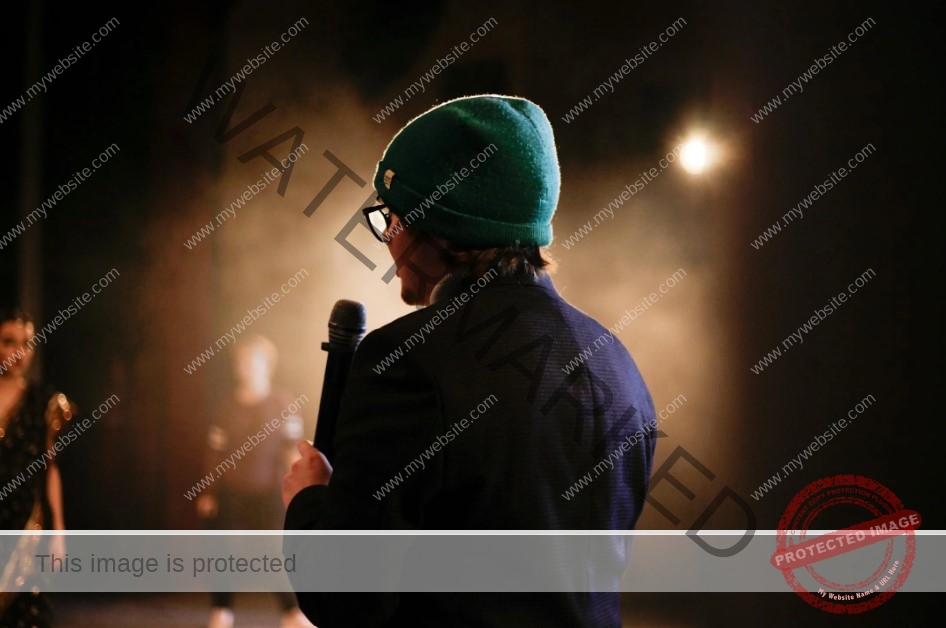Discover Harvard University’s thriving comedy scene, where aspiring comedians hone their skills through student-run comedy clubs, performances, and campus events. We also discuss Harvard comedy scene and Harvard University comedy clubs. As well as Aspiring comedians Harvard University and Harvard student comedians.
Harvard Comedy Scene
Comedy Legacy
The Harvard comedy scene is legendary. Comedy at Harvard goes back to the 1800s with the founding of The Harvard Lampoon. It is one of the oldest humor magazines in the country. What started as a student run publication grew into a respected institution that shaped the university’s comedy landscape. Over the years it has produced some of the greatest comedians of all time, Conan O’Brien and B.J. Novak.
The Harvard comedy legacy lives on and continues to inspire new generations of students so that aspiring comedians at Harvard University can succeed. The Harvard University comedy scene stands out not only because of its history but because of its impact on the entertainment industry. Many famous comedians, writers and performers got their start in Harvard’s comedy clubs. Additionally, they used the platform as a springboard to the professional world.
Humor as a Creative Outlet
One of the reasons the Harvard comedy scene has been so successful is because it allows for creativity in a unique way. Comedy, unlike many other forms of performance art, is dynamic and constantly changing. At Harvard, students are encouraged to push the boundaries of traditional humor and try new forms of comedic expression. This freedom to experiment has allowed many Harvard student comedians to find their own voice and hone their craft in a supportive environment.
The Harvard University comedy scene isn’t just about telling jokes. It’s about ideas, challenging norms and using humor to make sense of the world. Students in this scene often tackle big social and political issues through satire. They do this to prove that comedy can be smart and funny. This intellectual approach to humor is what makes the Harvard comedy scene so unique and powerful.
A Springboard for Comedy Careers
For many aspiring comedians at Harvard University being part of the comedy scene isn’t just a hobby—it’s a career. Harvard has produced some of the biggest names in comedy, from actors and writers to producers and directors. Conan O’Brien started his career writing for The Harvard Lampoon before moving on to write for Saturday Night Live and host his own talk show. Mindy Kaling, of The Office, also got her start at Harvard.
What makes the Harvard University comedy scene unique is that it doesn’t just let students perform. It also connects them with alumni who have made it in the industry. Those connections plus the experience from the Harvard comedy clubs gives Harvard student comedians a direct line to a career in comedy.
See also: Impactful Charity Projects Led by Harvard University Alumni
Harvard University Comedy Clubs
The Harvard Lampoon: A Comedy Institution
You can’t talk about Harvard comedy without talking about The Harvard Lampoon. Founded in 1876, The Lampoon is one of the oldest humor magazines in the world. It is also the heart of the Harvard comedy scene. It’s a proving ground for aspiring comedians at Harvard, many of whom have gone on to have big careers in entertainment. The magazine’s satire and irreverence have gotten national attention. Additionally, it’s known for producing some of the funniest and most original comedic voices.
The Harvard Lampoon is more than a publication. It’s a social organization that hosts events, parties and collaborations that bring together Harvard student comedians and alumni. Many Harvard comedy clubs look to The Lampoon as the benchmark for comedic success. Thus, getting involved with the magazine is seen as a big deal for any aspiring comedian at Harvard.
Harvard student comedians who work with The Lampoon develop not only their writing skills but also their timing, creativity and ability to work with others. These are the skills you need to succeed in the world of professional comedy.
Improv Groups: Fast-Paced and Collaborative
While The Lampoon is written comedy, Harvard’s improv comedy groups are where students can develop their performance skills. Harvard comedy clubs like the Immediate Gratification Players (IGP) and On Thin Ice offer students the chance to do improv. Improv is a highly collaborative and spontaneous form of comedy. Improv groups are a big part of the Harvard comedy scene. Here students can try out different comedic styles, work on public speaking and learn to think on their feet.
For many Harvard student comedians, improv is a way to try comedy without the script. These groups perform on campus regularly and are known for their fast-paced and unpredictable shows that leave the audience in hysterics. Improv is where students can try out new ideas, characters and scenarios all while getting live performance experience.
Stand-Up Comedy: A Growing Platform
In recent years stand-up has become a bigger part of the Harvard comedy scene. While improv and sketch have always been the dominant forms, more and more students are now trying stand-up as a way to express themselves comedically. Many Harvard student comedians find that stand-up allows them to get into more personal and introspective material. Thus, tackling topics like identity, culture and social issues through humor.
The Harvard College Stand-Up Comics Society has given students a space to try out stand-up and perform in front of their peers. Stand-up shows on campus allow aspiring comedians at Harvard to try out their jokes in a safe space, build confidence and work on their timing. Read Harvard University comedy clubs.
Aspiring Comedians at Harvard University
Special Opportunity
Harvard University offers comedians a special chance to combine their studies with their comedy. With the university’s reputation and comedy history, students have the resources and connections to succeed. For many comedians at Harvard University, comedy is more than just a hobby – it’s a career in entertainment.
Many students find that being part of Harvard University comedy clubs gives them a platform to try out their comedy while still focusing on their studies. Comedy at Harvard is not limited to one specific major or field of study so students from all majors can get involved. Whether you’re a politico, a lit major or an engineer, you can find a place in the Harvard comedy scene to develop your comedic voice.
See also: How Harvard University Engages Students in Social Impact Initiatives
A Community
One of the best things about the Harvard University comedy scene is the community. Comedy is a collaborative art form and Harvard’s comedy clubs encourage students to work together to create something new. For comedians at Harvard University, this community is a safe space to take risks and try out new stuff.
Mentorship is also a big part of the Harvard comedy community. Many alumni who have gone on to succeed in comedy come back to mentor current students, offering guidance, advice and even opportunities to collaborate. These mentorship opportunities are huge for Harvard student comedians as they navigate the often treacherous transition from campus comedy to professional success.
The Challenges
Despite all the opportunities in the Harvard comedy scene, comedians at Harvard University still face their share of challenges. One of the biggest is balancing comedy with the academic demands of Harvard. Many students find it hard to juggle coursework, extracurriculars and comedy. But for those who are serious about comedy, it’s worth it.
Another challenge for Harvard student comedians is getting into the professional comedy world after graduation. While the Harvard comedy scene is a great foundation, the entertainment industry is tough. Harvard student comedians will have to face rejection, work hard and continue to hone their craft even after they leave the university.
Harvard Student Comedians
Leaving a Mark on Hollywood
Harvard student comedians have made a mark on Hollywood and the entertainment industry. From writing for hit TV shows to performing stand-up on the biggest stages, many Harvard alums have gone on to do big things in comedy. The Office, Parks and Recreation and The Simpsons all have Harvard connections through their writers, actors or producers, many of whom started in the Harvard comedy scene.
Harvard’s comedy alums are shaping the future of comedy by bringing their intellectual humor and mainstream appeal to the world. Harvard student comedians are known for their ability to mix highbrow with lowbrow, making content that appeals to everyone.
See also: Harvard University’s Partnership with Nonprofits: A Force for Good
The Next Generation of Harvard Comedians
The Harvard comedy scene is still going strong, churning out new talent every year. As digital media grows, Harvard student comedians are finding new ways to share their work with audiences far beyond the Harvard campus. Whether it’s through social media, podcasts or online sketches, today’s aspiring comedians at Harvard University are using every tool at their disposal to build their comedy careers.
With Harvard alums doing well in comedy, the future looks good for the next generation of Harvard student comedians. The Harvard comedy scene is always changing but its commitment to talent and creativity remains the same.
Conclusion
The Harvard University comedy scene is a big part of campus life and a place for aspiring comedians at Harvard University to express themselves, find their voice and connect with a community. From The Harvard Lampoon to improv groups and stand-up shows, Harvard has plenty of opportunities for Harvard student comedians to develop their skills and go for their comedy dreams.
If you like comedy, there’s no better place to be than the Harvard comedy scene. The university’s comedy heritage and its ties to the industry make Harvard the perfect springboard for a comedy career. Whether on campus or in Hollywood, Harvard student comedians are making their mark, one joke at a time.
See also: https://www.radcliffe.harvard.edu/event/2022-to-laugh-is-your-only-job-performance

